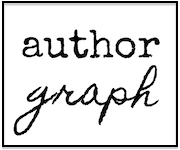I am particularly proud of this short that was published in the Fall Issue of Rose & Thorn. Not my usual sort of thing, and it’s nice to do well in something new.
You’ll find it below, though I highly suggest following the link and reading it on their site. It’s so beautifully laid out and the artwork over there is stunning.
Marion hangs her coat on the rack with precision.
I watch her enter the flat, and maybe she realizes I can see her in the reflection on the glass but she doesn’t say anything. She comes to stand beside me, looking out at the lights of the boats on the river with her arms crossed.
“Why are you here?” I ask.
“I have as much right to be here as you have.”
“So you come to watch the river out of spite?”
She walks into the kitchen and I follow her, my chair rolling across the tiles without a sound. She opens the cabinet beside the refrigerator and pulls out the paraphernalia, laying it on the counter in her routine order.
“I can take care of that myself.”
“I’m just helping.”
I snatch the syringe out of her hand and accidentally puncture the pad of her thumb. A neat bead of blood grows against her pale skin. She stares at me in astonishment for only a moment before she smoothes her features again, so carefully unfeeling when we’re together now. She puts down the bottle and turns to leave.
I grab her wrist as she passes.
“I’m sorry,” I say. “I can do it for myself. I do it for myself now.”
“Of course,” she says. “My fault. Force of habit.”
I nod, though she’s not looking at me, and when I release her wrist she walks away.
***
She comes out of the guest bedroom wearing silky pajamas, only these are long pants with long sleeves, not the lacy negligees she always wore before.
“Did you buy those for me?” I ask.
There’s a ghost of a smile when she says, “Yes, actually.”
“Cheaper than the cost of a hotel room when you have to stay in town,” I say.
“Yes,” she answers, her voice far away.
***
There’s a light on in the kitchen when I get up at three in the morning. She’s sitting at the table with a glass of something on the rocks in front of her.
“Whatcha’ having?” I ask.
“Water.
“Oh.” And we say nothing as I roll to the cabinet and refrigerator for my own. I pull up to the table beside her. “Couldn’t sleep?”
“Isn’t that just a ridiculous question?” she asks, but there’s laughter in her voice. I huff quietly with amusement.
“Does anyone come around these days?” she asks.
“You mean who’s checking up on me?”
“No, that’s not what I meant.”
“Yes it is.” She doesn’t argue. “Your brother, actually, as terribly odd as that is.”
“He always liked you. Probably better than me.”
“Did you ask him to check on me?”
“Not exactly.”
“I’m okay you know. I do just fine by myself.”
“I know.”
She drinks the last of her water, the ice cubes tumbling noisily in the glass as she rights it. She stands and dumps them in the sink, puts the glass in the dishwasher, and leaves the room.
I find her in my study, starting at the painting behind my desk. The colors are lurid, obscene in a way the bodies twisted together are not.
“Where did you get that?” she asks, breathless.
“In that little gallery in Paris.”
“They still had it?”
“No. I bought it there, when we saw it.”
“On our honeymoon? Why didn’t I know? Where was it all this time?”
“It was supposed to be a surprise. For our tenth anniversary.”
“On our honeymoon?”
I shrug. “I’m an optimist.”
Her lips dance around the idea of a smile.
“That was only four years ago,” she says.
“We were only married for three.”
“So why’s it up there now?”
“Why not? What’s there to wait for?”
There’s a long silence.
“I might still give it to you,” I say, “or, at least, I want you to have it when I’m gone. I’ve left it to you in my will.”
“Don’t talk about that. You’re okay, Charles.”
“Yes,” I say, “you’re probably right.”
She moves as if to leave but stops and faces me.
“Do you ever think it was a mistake, getting married? Do you ever wish we hadn’t done it?”
“No.”
“No?”
“No. Then I wouldn’t have the painting.”













That last line was absolutely biting. Good story.
Well thank you, sir. I rather enjoyed it myself. 😉
Congratulations, Leah! So vivid. Reading it I felt like I was in the room watching it all unfold.